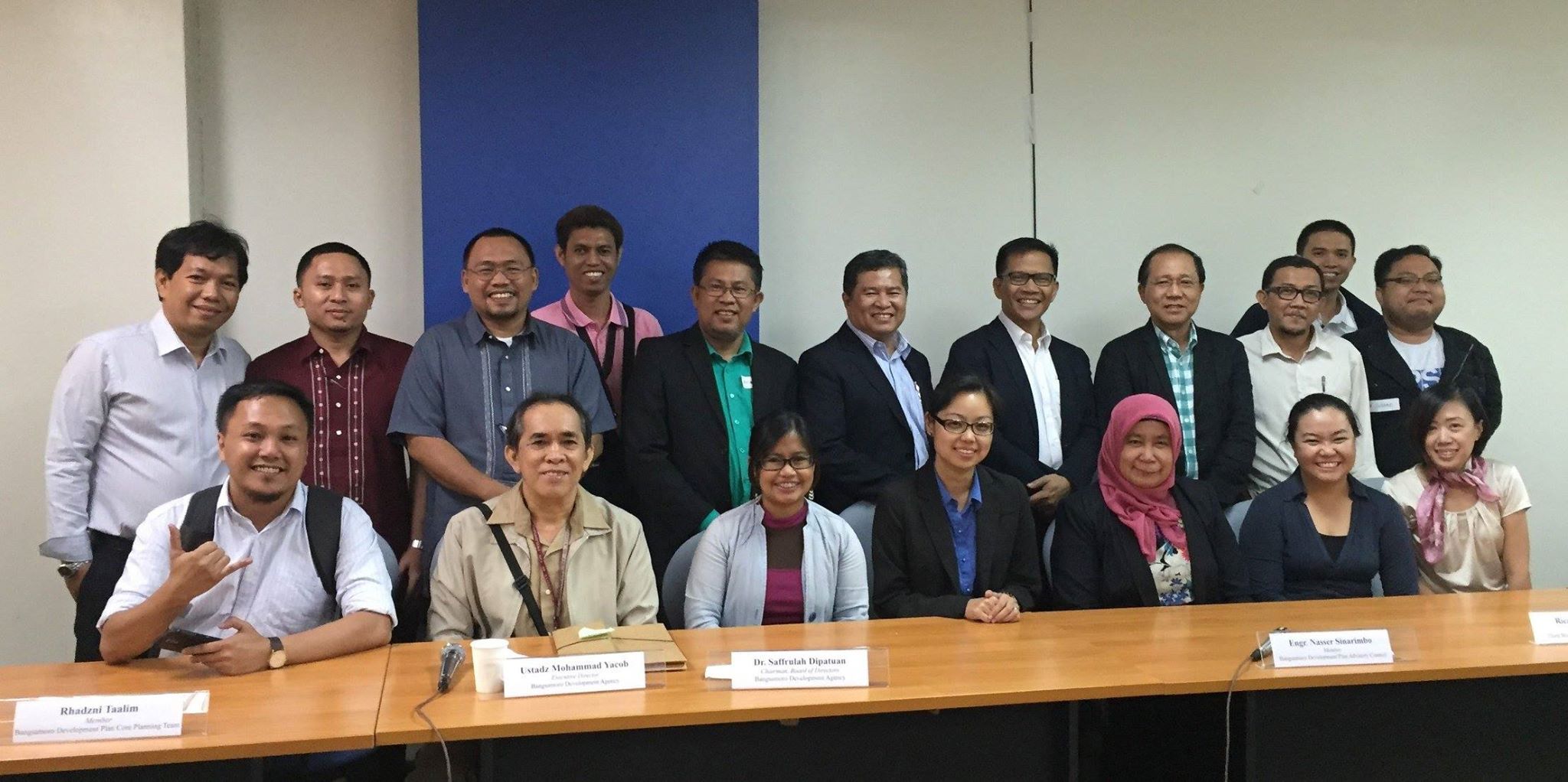 The UP Asian Center and the UP Institute of Islamic Studies organized a roundtable on the Bangsamoro Development Plan on 22 May 2015 at the Seminar Room, Asian Center, University of the Philippines Diliman.
The UP Asian Center and the UP Institute of Islamic Studies organized a roundtable on the Bangsamoro Development Plan on 22 May 2015 at the Seminar Room, Asian Center, University of the Philippines Diliman.
The Bangsamoro Development Plan serves as a blueprint for the development of the proposed Bangsamoro territory, and was released to the public last month by the Bangsamoro Development Agency (BDA), the development arm of the Moro Islamic Liberation Front. The Plan seeks to implement programs and projects that would engage in six key areas, namely: economy and livelihood, infrastructure, social services, environment and natural resources, culture and identity, and governance.
The closed-door roundtable was attended by public intellectuals, members of the academe, and officials of the Bangsamoro Development Agency, including the Chairman of the Board of Directors, Dr. Saffrullah Dipatuan; Ustadz Mohammad Yacob, Executive Director; Engineer Nasser Sinarimbo, Member of the Bangsamoro Development Plan Advisory Council; and Rhadzni Taalim, Member of the Bangsamoro Development Plan Core Planning Team. They gave an overview of the different sections of the Bangsamoro Development Plan.
Also in attendance were faculty of the Asian Center, Dr. Tina Clemente, Associate Professor; Dr. Marina Durano, Assistant Professor; and Dr. Eduardo C. Tadem, Professor, who moderated the event with Dean Julkipli Wadi of the UP Institute of Islamic Studies. They were joined by members of civil society organizations and indigenous peoples' rights groups.
The participants posed questions to the BDP officials on the 216-page development plan, covering questions of policy, implementation, and operation. They pointed out gaps in the BDP and inquired about the nature of the data, the question of land ownership and the implementation of CARP, the impact of mining and extractive industries, integration of BDP with national development, the management of marine resources, the role of the halal industry, the role of non-MILF groups and the Muslims in other parts of the Philippines, the application of Shari'ah, and the right to ancestral domain of non-Moro indigenous peoples. The BDA officials then responded to the comments, elaborating on the features of the BDP.
The Asian Center offers M.A. degrees in Asian Studies with four fields of specialization: Northeast Asia, Southeast Asia, South Asia, and West Asia. The Center also has an M.A. program in Philippine Studies that allows students to major in Philippine society and culture, Philippine foreign relations, or Philippine development studies. The Center offers a Ph.D. program in Philippine Studies in conjunction with the College of Arts and Letters and the College of Social Sciences and Philosophy. For an overview of these graduate programs, click here. The Asian Center also publishes Asian Studies: Journal of Critical Perspectives on Asia, the latest issue of which can be downloaded at the journal's website. For other news and upcoming events at the Asian Center, click here.
 The UP Asian Center and the UP Institute of Islamic Studies organized a roundtable on the Bangsamoro Development Plan on 22 May 2015 at the Seminar Room, Asian Center, University of the Philippines Diliman.
The UP Asian Center and the UP Institute of Islamic Studies organized a roundtable on the Bangsamoro Development Plan on 22 May 2015 at the Seminar Room, Asian Center, University of the Philippines Diliman. 
